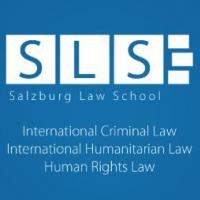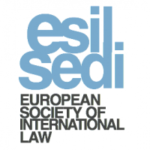19th Summer Session of Salzburg Law School on International Criminal Law, Humanitarian Law and Human Rights Law

 ‘Between Codification and Progressive Development: International Criminal Law after Rome and Kampala’
‘Between Codification and Progressive Development: International Criminal Law after Rome and Kampala’
The Salzburg Law School on International Criminal Law, Humanitarian Law and Human Rights Law (SLS) welcomes applications for its Nineteenth Summer Session, Sunday 30 July to Wednesday 9 August 2017.
The upcoming session will focus on substantive international criminal law. SLS 2017 will analyse the classic doctrinal concept of international criminal law as a branch of international law, its legal basis and its contemporary relevance. We will assess the development of crimes and categories of crimes under international law within and outside the Rome Statute system. This includes evaluating methods for the identification of customary international law, monitoring codification efforts, e.g. regarding a Convention on Crimes against Humanity, and having a look at potential future developments, e.g., with a view to crimes against the environment. SLS will discuss developments within the ASP Working Group on Amendments on the further harmonization of international criminal law applicable in armed conflicts of international and non-international character, adding the use and the threat to use nuclear weapons in the definition of war crimes, and including the crime of terrorism and the crime of international drug trafficking in article 5 of the Rome Statute.
2017 might be the turning point for individual criminal responsibility for the unlawful use of force. SLS 2017 will thoroughly analyse the definition of the crime of aggression adopted by the Kampala Review Conference, the conditions for the International Criminal Court’s exercise of jurisdiction, as well as the outlook for an activation decision to be taken at the 2017 Assembly of States Party. In addition, SLS 2017 will provide insight on the underlying rules of the use of force under international law. The scope and ius cogens character of the prohibition of the use of force, its exceptions as provided in the Charter of the United Nations, as well as potential ‘grey areas’, in particular, the question of unauthorized humanitarian interventions. One session will be dedicated to the origins of a prohibition and criminalization of the unlawful use of force under Islamic law.
Finally, SLS 2017 will provide ample opportunity to debate current developments in the field of international criminal law, e.g. the principle of irrelevance of official capacity and the impact of three recent withdrawals by African members States on the future of international criminal justice. Court officials will provide an update on the latest jurisprudence of the ICC and we will continue our project on international criminal law in cinema.
Confirmed speakers include Mr. Gilbert Bitti, Senior Legal Advisor to the Pre-Trial Division, ICC; Dr. Yassin M. Brunger, Lecturer in Human Rights Law, Queen’s University Belfast; Ms. Eleni Chaitidou, Legal Officer at the Pre-Trial Division, ICC; Prof. Roger Clark, Board of Governors Professor, Rutgers University School of Law; Dr. David Donat Cattin, Secretary-General, Parliamentarians for Global Action; Adjunct Assistant Professor of International Law, Centre for Global Affairs, New York University; Prof. Dr. Dr. h.c. mult. Albin Eser, Director emeritus of the Max Planck Institute for Foreign and International Criminal Law, Freiburg; Former Judge at the International Criminal Tribunal for the former Yugoslavia; Dr. Mohamed Elewa Badar, Reader in Comparative and International Criminal Law and Islamic Law, Northumbria University; Prof. Benjamin Ferencz, A leading Nuremberg Prosecutor with continuous efforts to enhance international criminal law and its enforcement (lecture via video message); Prof. Don Ferencz, Convenor, The Global Institute for the Prevention of Aggression; Visiting Professor, School of Law, Middlesex University; Research Associate, Oxford University Faculty of Law Centre for Criminology; Prof. William A. Schabas, OC MRIA, Professor of International Law, School of Law, Middlesex University, Professor of International Criminal Law and Human Rights, Leiden University; Prof. Jennifer Trahan, Associate Clinical Professor of Global Affairs, New York University; Chair, American Branch of the International Law Association, ICC Committee; American Bar Association, ICC Task Force; Dr. Astrid Reisinger Coracini, Lecturer, University of Salzburg; Director of the Salzburg Law School on International Criminal Law, Humanitarian Law and Human Rights Law.
For further information visit http://sls.sbg.ac.at or contact Salzburg_Law_School@sbg.ac.at.

